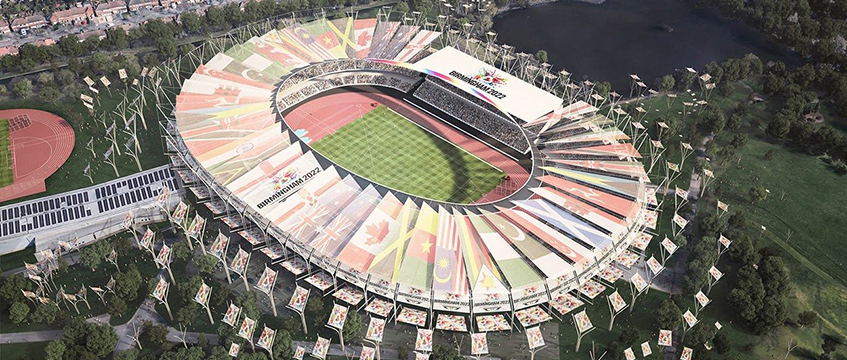Collaboration is the name of the game when it comes to making the most out of major cultural and tourism events.
Without working together, communities could miss the once in a lifetime opportunity to put themselves in on an international stage.
That was the view of a panel of experts from across the Midlands at MIPIM.
“With Brexit and what is going on in our communities it is more important, not less important, to use culture, sport and events to bring people together, to give a sense of purpose and connection between different-coloured faces, different ages and different genders,” said Martin Reeves, chief executive of Coventry City Council. “That social cohesion is no less important than the impact on the economy or being projected on an international stage.”
And the Midlands region is starting early for its turn on the international stage. In 2021 Coventry will become the UK City of Culture, with Birmingham hosting the 2022 Commonwealth Games a year later. To get maximum benefit from both those events, the region needs to work across boundaries to deliver indigenous and international growth.
PwC estimates that over the 11 days of the Commonwealth Games some £500m of income will be generated, while Coventry’s City of Culture win has been predicted to generate some £350m of direct and indirect investment. But for both Birmingham City Council leader Ian Ward and Coventry’s Reeve, the benefit will come from more than just investment. It will come from seizing the opportunities the events deliver.
Alongside the Games, Birmingham will host a four-day business expo giving Midlands firms the opportunity to showcase their businesses to Commonwealth heads of state and the more than 10,000 visitors the city expects to draw to the expo.
The games themselves will attract between 500,000 and 1m visitors to the city and Ward said capitalising on that was vital.
“What you can’t do is have these events as a one-off,” he said. “You have to build it into a longer-term strategy. The games is part of Birmingham’s plan and development strategy and we very much want to make sure that after the games is not the end of something but the beginning of a new period of more international sporting and cultural events coming to the city. We want to turn the city into a genuine visitor destination.
“The games have to be for the people of Birmingham. We have to get people engaged in the excitement of it and we have to ensure there is a legacy for the people of Birmingham.”
For Lambert Smith Hampton regional director for Birmingham & East Midlands, Adam Ramshaw, the efforts over the past few years of key stakeholders to come together to market the Midlands in a collective way has been fundamental in enabling them to showcase the region on a larger stage.
“The local authorities are open for business,” he said. “They are actively encouraging inward investment – both domestic and international – and things are happening. The fundamentals are already there. The region already has fantastic connectivity, its location is fantastic, and this is just the icing on the cake.”
But for Reeves there is still work to do, and towns, cities, councils and the built environment must continue to work together.
“We have got to focus on those key benefits,” he said. “We will never get chance to showcase like this again.”
Panel
■ Frank Horsley, head of economic regeneration, Derbyshire County Council
■ Robin Norstrom, director, Apsley House Capital
■ Martin Reeves, chief executive, Coventry City Council
■ Adam Ramshaw, regional director for Birmingham & East Midlands, Lambert Smith Hampton
■ Ian Ward, leader, Birmingham City Council












